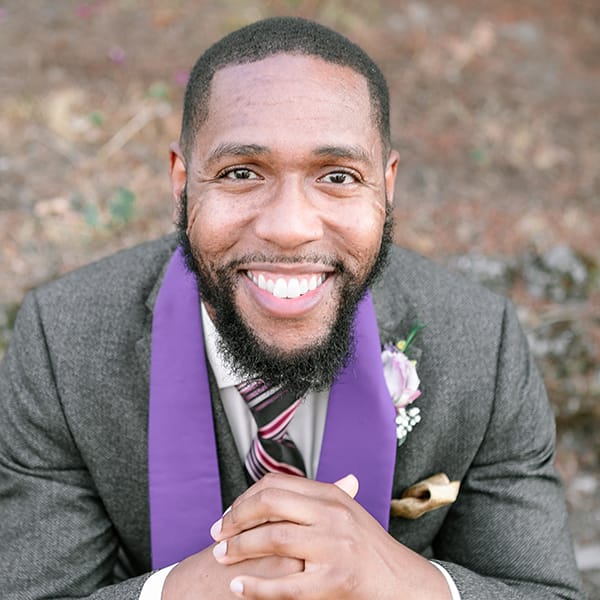by Darrell Hamilton
June 19, 1865 is the day when the last enslaved persons in Galveston, Texas received news that they had been emancipated. Juneteenth, as this day has been called, commemorates in the hearts and minds of Black folks the official end of slavery in the United States.
This year, Father’s Day is the next day following the 156th anniversary of Juneteenth. Likewise, Father’s Day is twenty six days after the one-year anniversary of George Floyd’s murder by convicted former police officer Derek Chauvin caught on film by seventeen-year-old Darnella Frazier.
This Juneteenth, I cannot help but think about the realities of countless Black men who—like George Floyd—have been alienated and violated by a system of racism and white supremacy that leaves too many fathers dead and dying in the streets. Lives of fathers like George Floyd, Philando Castile, Jonathan Edwards, and the countless generations of black men were taken, and their children were made orphans forever forced to stare at a vacant seat on Father’s Day.
I cannot help but think about the 244 Black men killed by police in 2019. The one in three Black boys who are expected to go to prison in their lifetime. That homicide remains as the number one cause of death for Black males ages 10 to 24. The countless number of other police officers who were not brought to justice for their inhumanity and disregard for Black bodies.
Oh, how this nation and its leaders love to conceal the truth that America is indeed a racist country. Furthermore, how this nation loves to deny the truth that even after 156 years, Black people in this nation are still not free.
Black people remain shackled and sequestered in food deserts; incarcerated in communities with over policing, lead in the water, and increased rates of murder and suicide. The effects of COVID-19 were proven to have had a disproportionate impact on Black communities. [1] Due to generations of systemic, racist policies, once-thriving and affluent Black communities have been changed into ghettos and proverbial cemeteries.
Black people generally, and Black men particularly, have been made to be like the man found in the fifth chapter of Mark’s Gospel—a man from the region of the Gerasenes who has his name smeared, his character maligned, his humanity stripped, and who is forced to live his life among the tombs (Mark 5:1-9b). Like the title character in Ralph Ellison’s novel, the man has been made invisible because people choose not to see him; instead, presuming him to be the victim of his own spiritual deprivation rather than the product of a failed society that has pushed him, and far too many people like him, to live on the fringes and outskirts of society.
Yet, if freedom is to truly be realized on the heels of this year’s Juneteenth anniversary, then those who have known freedom for themselves must, in the words of Kimberly Harden and Tai Harden-Moore, “move from allies to accomplices” and confront systemic racism where it persists. In solidarity with Black people in this nation and around the globe, whether they be black of skin or marked black by marginalization, accomplices are needed to conspire so not another Black body is killed by the pandemic of racism and white supremacy.
On the heels of the one-hundred-year anniversary of the Greenwood Massacre in Tulsa, OK, accomplices are needed to conspire to their school boards and city officials against the baseless attacks on Critical Race Theory that are nothing more than a 21st century attempt to raze Black communities once again, but this time through undermining Black children’s thriving through education.
Therefore, to make Juneteenth and the promise of freedom real is by dismantling the vestiges of our nation’s antebellum past through seeing, hearing, and restoring the full humanity of dehumanized people. Anything less makes chants and statements of “Black lives matter” nothing more than the sound of clanging brass and tinkling cymbals. Anything less is not the love of Christ. Anything less is no love at all.
[1] Vasquez Reyes M. (2020). The Disproportional Impact of COVID-19 on African Americans. Health and human rights, 22(2), 299–307

Darrell R. Hamilton, II is the Executive Minister for Operations and Resource Development for Middle Collegiate Church in New York City. Prior to Middle, he served as the Pastor for Formation and Outreach at First Baptist Church in Jamaica Plain, MA. Darrell is an ordained Baptist minister and is impassioned by the way politics and faith merge together in the Christian theological traditions of justice and liberation. Darrell is a graduate of Wake Forest School of Divinity where he attained his Masters of Divinity degree May 2017




Recent Comments